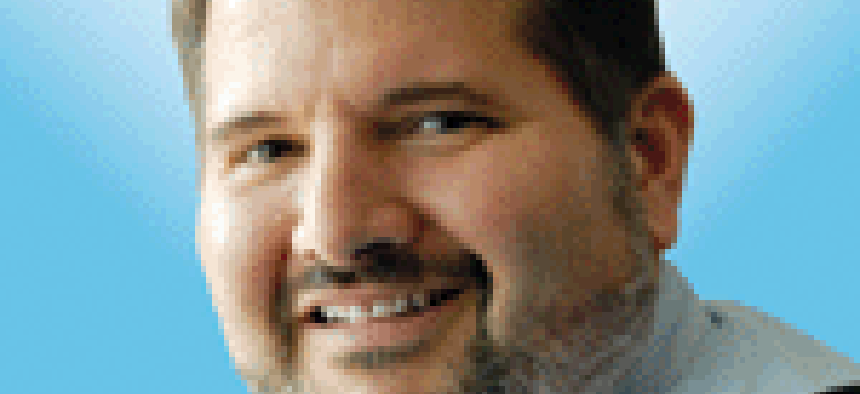Soloway resigning as PSC leader

Stan Soloway, the Professional Services Council's long-time leader, has decided to step down as the association's president and CEO.
EDITORS NOTE: This blog was updated following a PSC press conference.
Stan Soloway, the Professional Services Council’s long-time leader, has decided to step down as the association’s president and CEO.
His resignation comes after 15 years of leading the organization and growing it by 300 percent.
In a letter to its members, Soloway called it a “difficult decision” but said, “I am at that stage in my career where, if I want to do something different and substantial before I retire, the time to do so is now."
Soloway is 61 years old.
He’ll remain president and CEO through the transition to a new leader.
Soloway told reporters that he made the decision several months ago and has been working with his board since then on a transition plan. Now that his planned departure is public, the association will work more aggressively to find a replacement.
IBM executive Anne Altman, a member of the PSC board, will lead the search effort. Four other PSC members will serve on the search committee and an executive search firm will be hired to help in the effort.
Soloway said that a new leader should be in place by the end of year. He'll stay on board until then and help with the transition.
“It goes without saying that we hate to see Stan depart PSC,” said Ellen Glover, executive vice president of ICF International and chair of the PSC board of directors. “During the last 15 years, Stan has been an extraordinary leader for PSC, greatly expanding the association's reach and scope and taking it to new heights.”
Soloway leaves with no specific plans, but one thing seems certain -- he has no plans to go back into the government. He said he hasn't had any conversations about the future, but will now since the news is public.
He said it was too difficult to explore options without rumors getting started.
Under his leadership, PSC has grown significantly.
He said in 2000, when he was recruited by Paul Lombardi, then chairman of DynCorp, that PSC had 105 to 110 members. Today, they are approaching 400. The association is on a good financial footing and is investing in more capacity, he said.
Most of the growth has been "organic" by recruiting new members. In 2008, it picked up about 50 members when it acquired Contract Services Association. It didn't pick up any new members when it acquired the Tech America Foundation earlier this year, but some companies joined because of the acquisition, he said. PSC has also expanded its involvement with the international development industry and added members that way.
Soloway has led the industry group through a period of transition in the marketplace, particularly in the last few years as the pace of technological changes increased and had a broad impact on government and business.
The adjustments better positioned the association to help its members weather the changes taking place in the market. The goal has been to get ahead of the changes. "We're a Type A organization," Soloway said.
For example, the creation of the technology policy council “represents a recognition of the convergence taking place between the technology and professional services sectors and the many issues associated with that convergence. Today, the lines that traditionally separated the two have been blurred almost to extinction,” Soloway said at the time the council was formed in 2014.
Keeping up with the rapid pace of change in the market will need to be a top priority for his replacement and for the entire organization. "Whoever comes in behind me will have to do that because the pace of change is not going to slow down," Soloway said. "You have to help your member companies and government partners adapt."
It'll be a mistake to sit back and think you have it figured out. "You're not going to have it solved, and you won't for a long time," he said.
Soloway leaves big shoes to fill, but as much as Soloway is synonymous with PSC, we’ve seen multiple companies with billions in revenue make similar transitions. Lockheed Martin thrived after Norm Augustine retired.
And Soloway had a career before PSC. He was deputy undersecretary of defense for acquisition reform during the second half of the Clinton administration. For 20 years prior to that he was a public policy and public affairs consultant and an expert on acquisition, privatization and outsourcing issues.
He also has had a regular monthly column for WT, something I expect he’ll continue to write for us.
In short, PSC will survive, and so will Soloway.
NEXT STORY: Triad Technology Partners names new VP of BD
